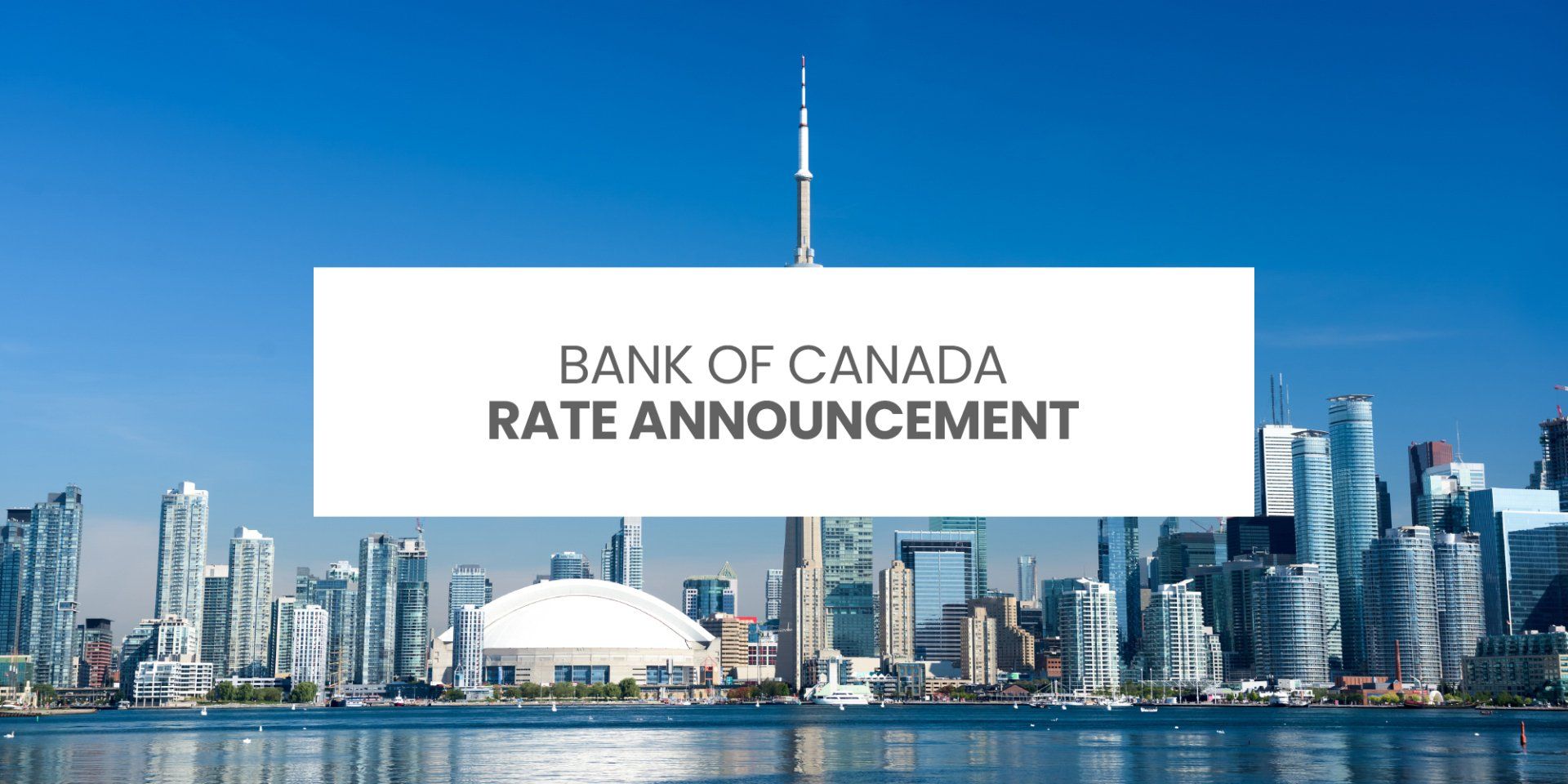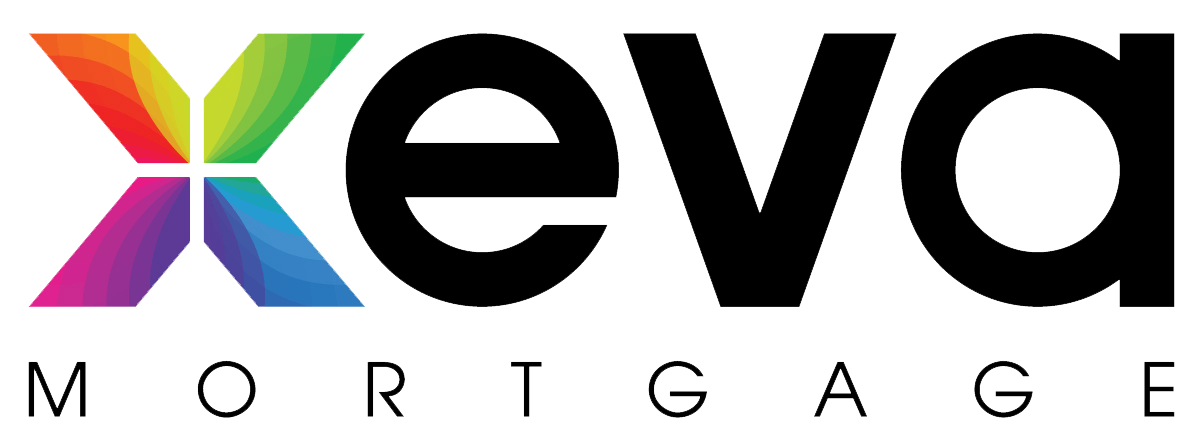The 10 Don’ts of Mortgage Closing
Andrew Homeyer • April 2, 2020

Okay, so here we are... we have worked together to secure financing for your mortgage. You are getting a great rate, favourable terms that meet your mortgage goals, the lender is satisfied with all the supporting documents, we are broker complete, and the only thing left to do is wait for the day the lawyers advance the funds for the mortgage. Here is a list of things you should NEVER do in the time between your financing complete date (when everything is setup and looks good) and your closing date (the day the lender actually advances funds).
Never make changes to your financial situation without first consulting me. Changes to your financial situation before your mortgage closes could actually cause your mortgage to be declined.
So without delay, here are the 10 Don'ts of Mortgage Closing... inspired by real life situations.
1. Don't quit your job.
This might sound obvious, but if you quit your job we will have to report this change in employment status to the lender. From there you will be required to support your mortgage application with your new employment details. Even if you have taken on a new job that pays twice as much in the same industry, there still might be a probationary period and the lender might not feel comfortable with proceeding. If you are thinking of making changes to your employment status... contact me first, it might be alright to proceed, but then again it might just be best to wait until your mortgage closes! Let's talk it out.
2. Don't do anything that would reduce your income.
Kinda like point one, don't change your status at your existing employer. Getting a raise is fine, but dropping from Full Time to Part Time status is not a good idea. The reduced income will change your debt services ratios on your application and you might not qualify.
3. Don't apply for new credit.
I realize that you are excited to get your new house, especially if this is your first house, however now is not the time to go shopping on credit or take out new credit cards. So if you find yourself at the Brick, shopping for new furniture and they want you to finance your purchase right now... don't. By applying for new credit and taking out new credit, you can jeopardize your mortgage.
4. Don't get rid of existing credit.
Okay, in the same way that it's not a good idea to take on new credit, it's best not to close any existing credit either. The lender has agreed to lend you the money for a mortgage based on your current financial situation and this includes the strength of your credit profile. Mortgage lenders and insurers have a minimum credit profile required to lend you money, if you close active accounts, you could fall into an unacceptable credit situation.
5. Don't co-sign for a loan or mortgage for someone else.
You may have the best intentions in the world, but if you co-sign for any type of debt for someone else, you are 100% responsible for the full payments incurred on that loan. This extra debt is added to your expenses and may throw your ratios out of line.
6. Don't stop paying your bills.
Although this is still good advice for people purchasing homes, it is more often an issue in a refinance situation. If we are just waiting on the proceeds of a refinance in order to consolidate some of your debts, you must continue making your payments as scheduled. If you choose not to make your payments, it will reflect on your credit bureau and it could impact your ability to get your mortgage. Best advice is to continue making all your payments until the refinance has gone through and your balances have been brought to zero.
7. Don't spend your closing costs.
Typically the lender wants to see you with 1.5% saved up to cover closing costs... this money is used to cover the expense of closing your mortgage, like paying your lawyer for their services. So you might think that because you shouldn't take out new credit to buy furniture, you can use this money instead. Bad idea. If you don't pay the lawyer... you aren't getting your house, and the furniture will have to be delivered curbside. And it's cold in Canada. You get the picture. However just in case you don't, I included it below.
8. Don't change your real estate purchase contract.
Often times when you are purchasing a property there will be things that show up after the fact on an inspection and you might want to make changes to the contract. Although not a huge deal, it can make a difference for financing. So if financing is complete, it is best practice to check with me before you go and make any changes to the purchase contract.
9. Don't list your property for sale.
If we have set up a refinance for your property and your goal is to eventually sell it... wait until the funds have been advanced before listing it. Why would a lender want to lend you money on a mortgage when you are clearly going to sell it right away (even if we arranged a short term).
10. Don't accept unsolicited mortgage advice from unlicensed or unqualified individuals.
Although this point is least likely to impact the approval of your mortgage status, it is frustrating when people who don't have the first clue about your unique situation give you unsolicited advice about what you should do with your mortgage, making you second guess yourself. Now, if you have any questions at all, I am more than happy to discuss them with you. I am a mortgage professional and I help clients finance property everyday, I know the unique in's and out's, do's and don'ts of mortgages. Placing a lot of value on unsolicited mortgage advice from a non-licensed person doesn't make a lot of sense and might lead you to make some of the mistakes as listed in the 9 previous points!
So in summary, the only thing you should do while you are waiting for the advance of your mortgage funds is to continue living your life like you have been living it! Keep going to work and paying your bills on time!
Now... what about after your mortgage has funded? You are now free to do whatever you like! Go ahead... quit your job, go to part time status, apply for new credit to buy a couch and 78" TV, close your credit cards, co-sign for a mortgage, sell your place, or soak in as much unsolicited advice as you want! It's up to you! But just make sure your mortgage has funded first. Also it is good to note, if you do quit your job, make sure you have enough cash on hand to continue making your mortgage payments! The funny thing about mortgages is if you don't make your payments, the lender will take your property and sell it to someone else and you will be left on that curbside couch (as pictured above). Obviously, if you have any questions, I would love to answer them for you, feel free to contact me anytime!
RECENT POSTS

Bank of Canada increases policy interest rate by 50 basis points, continues quantitative tightening. FOR IMMEDIATE RELEASE Media Relations Ottawa, Ontario October 26, 2022 The Bank of Canada today increased its target for the overnight rate to 3¾%, with the Bank Rate at 4% and the deposit rate at 3¾%. The Bank is also continuing its policy of quantitative tightening. Inflation around the world remains high and broadly based. This reflects the strength of the global recovery from the pandemic, a series of global supply disruptions, and elevated commodity prices, particularly for energy, which have been pushed up by Russia’s attack on Ukraine. The strength of the US dollar is adding to inflationary pressures in many countries. Tighter monetary policies aimed at controlling inflation are weighing on economic activity around the world. As economies slow and supply disruptions ease, global inflation is expected to come down. In the United States, labour markets remain very tight even as restrictive financial conditions are slowing economic activity. The Bank projects no growth in the US economy through most of next year. In the euro area, the economy is forecast to contract in the quarters ahead, largely due to acute energy shortages. China’s economy appears to have picked up after the recent round of pandemic lockdowns, although ongoing challenges related to its property market will continue to weigh on growth. Overall, the Bank projects that global growth will slow from 3% in 2022 to about 1½% in 2023, and then pick back up to roughly 2½% in 2024. This is a slower pace of growth than was projected in the Bank’s July Monetary Policy Report (MPR). In Canada, the economy continues to operate in excess demand and labour markets remain tight. The demand for goods and services is still running ahead of the economy’s ability to supply them, putting upward pressure on domestic inflation. Businesses continue to report widespread labour shortages and, with the full reopening of the economy, strong demand has led to a sharp rise in the price of services. The effects of recent policy rate increases by the Bank are becoming evident in interest-sensitive areas of the economy: housing activity has retreated sharply, and spending by households and businesses is softening. Also, the slowdown in international demand is beginning to weigh on exports. Economic growth is expected to stall through the end of this year and the first half of next year as the effects of higher interest rates spread through the economy. The Bank projects GDP growth will slow from 3¼% this year to just under 1% next year and 2% in 2024. In the last three months, CPI inflation has declined from 8.1% to 6.9%, primarily due to a fall in gasoline prices. However, price pressures remain broadly based, with two-thirds of CPI components increasing more than 5% over the past year. The Bank’s preferred measures of core inflation are not yet showing meaningful evidence that underlying price pressures are easing. Near-term inflation expectations remain high, increasing the risk that elevated inflation becomes entrenched. The Bank expects CPI inflation to ease as higher interest rates help rebalance demand and supply, price pressures from global supply disruptions fade, and the past effects of higher commodity prices dissipate. CPI inflation is projected to move down to about 3% by the end of 2023, and then return to the 2% target by the end of 2024. Given elevated inflation and inflation expectations, as well as ongoing demand pressures in the economy, the Governing Council expects that the policy interest rate will need to rise further. Future rate increases will be influenced by our assessments of how tighter monetary policy is working to slow demand, how supply challenges are resolving, and how inflation and inflation expectations are responding. Quantitative tightening is complementing increases in the policy rate. We are resolute in our commitment to restore price stability for Canadians and will continue to take action as required to achieve the 2% inflation target. Information note The next scheduled date for announcing the overnight rate target is December 7, 2022. The Bank will publish its next full outlook for the economy and inflation, including risks to the projection, in the MPR on January 25, 2023. View the October 2022 Monetary Policy Report

Bank of Canada increases policy interest rate by 75 basis points, continues quantitative tightening. FOR IMMEDIATE RELEASE Media Relations Ottawa, Ontario September 7, 2022 The Bank of Canada today increased its target for the overnight rate to 3¼%, with the Bank Rate at 3½% and the deposit rate at 3¼%. The Bank is also continuing its policy of quantitative tightening. The global and Canadian economies are evolving broadly in line with the Bank’s July projection. The effects of COVID-19 outbreaks, ongoing supply disruptions, and the war in Ukraine continue to dampen growth and boost prices. Global inflation remains high and measures of core inflation are moving up in most countries. In response, central banks around the world continue to tighten monetary policy. Economic activity in the United States has moderated, although the US labour market remains tight. China is facing ongoing challenges from COVID shutdowns. Commodity prices have been volatile: oil, wheat and lumber prices have moderated while natural gas prices have risen. In Canada, CPI inflation eased in July to 7.6% from 8.1% because of a drop in gasoline prices. However, inflation excluding gasoline increased and data indicate a further broadening of price pressures, particularly in services. The Bank’s core measures of inflation continued to move up, ranging from 5% to 5.5% in July. Surveys suggest that short-term inflation expectations remain high. The longer this continues, the greater the risk that elevated inflation becomes entrenched. The Canadian economy continues to operate in excess demand and labour markets remain tight. Canada’s GDP grew by 3.3% in the second quarter. While this was somewhat weaker than the Bank had projected, indicators of domestic demand were very strong – consumption grew by about 9½% and business investment was up by close to 12%. With higher mortgage rates, the housing market is pulling back as anticipated, following unsustainable growth during the pandemic. The Bank continues to expect the economy to moderate in the second half of this year, as global demand weakens and tighter monetary policy here in Canada begins to bring demand more in line with supply. Given the outlook for inflation, the Governing Council still judges that the policy interest rate will need to rise further. Quantitative tightening is complementing increases in the policy rate. As the effects of tighter monetary policy work through the economy, we will be assessing how much higher interest rates need to go to return inflation to target. The Governing Council remains resolute in its commitment to price stability and will continue to take action as required to achieve the 2% inflation target. INFORMATION NOTE The next scheduled date for announcing the overnight rate target is October 26, 2022. The Bank will publish its next full outlook for the economy and inflation, including risks to the projection, in the MPR at the same time.

Bank of Canada increases policy interest rate by 100 basis points, continues quantitative tightening. FOR IMMEDIATE RELEASE Media Relations Ottawa, Ontario July 13, 2022 The Bank of Canada today increased its target for the overnight rate to 2½%, with the Bank Rate at 2¾% and the deposit rate at 2½%. The Bank is also continuing its policy of quantitative tightening (QT). Inflation in Canada is higher and more persistent than the Bank expected in its April Monetary Policy Report (MPR), and will likely remain around 8% in the next few months. While global factors such as the war in Ukraine and ongoing supply disruptions have been the biggest drivers, domestic price pressures from excess demand are becoming more prominent. More than half of the components that make up the CPI are now rising by more than 5%. With this broadening of price pressures, the Bank’s core measures of inflation have moved up to between 3.9% and 5.4%. Also, surveys indicate more consumers and businesses are expecting inflation to be higher for longer, raising the risk that elevated inflation becomes entrenched in price- and wage-setting. If that occurs, the economic cost of restoring price stability will be higher. Global inflation is higher, reflecting the impact of the Russian invasion of Ukraine, ongoing supply constraints, and strong demand. Many central banks are tightening monetary policy to combat inflation, and the resulting tighter financial conditions are moderating economic growth. In the United States, high inflation and rising interest rates are contributing to a slowdown in domestic demand. China’s economy is being held back by waves of restrictive measures to contain COVID-19 outbreaks. Oil prices remain high and volatile. The Bank now expects global economic growth to slow to about 3½% this year and 2% in 2023 before strengthening to 3% in 2024. Further excess demand has built up in the Canadian economy. Labour markets are tight with a record low unemployment rate, widespread labour shortages, and increasing wage pressures. With strong demand, businesses are passing on higher input and labour costs by raising prices. Consumption is robust, led by a rebound in spending on hard-to-distance services. Business investment is solid and exports are being boosted by elevated commodity prices. The Bank estimates that GDP grew by about 4% in the second quarter. Growth is expected to slow to about 2% in the third quarter as consumption growth moderates and housing market activity pulls back following unsustainable strength during the pandemic. The Bank expects Canada’s economy to grow by 3½% in 2022, 1¾% in 2023, and 2½% in 2024. Economic activity will slow as global growth moderates and tighter monetary policy works its way through the economy. This, combined with the resolution of supply disruptions, will bring demand and supply back into balance and alleviate inflationary pressures. Global energy prices are also projected to decline. The July outlook has inflation starting to come back down later this year, easing to about 3% by the end of next year and returning to the 2% target by the end of 2024. With the economy clearly in excess demand, inflation high and broadening, and more businesses and consumers expecting high inflation to persist for longer, the Governing Council decided to front-load the path to higher interest rates by raising the policy rate by 100 basis points today. The Governing Council continues to judge that interest rates will need to rise further, and the pace of increases will be guided by the Bank’s ongoing assessment of the economy and inflation. Quantitative tightening continues and is complementing increases in the policy interest rate. The Governing Council is resolute in its commitment to price stability and will continue to take action as required to achieve the 2% inflation target. Information note The next scheduled date for announcing the overnight rate target is September 7, 2022. The Bank will publish its next full outlook for the economy and inflation, including risks to the projection, in the MPR on October 26, 2022.










